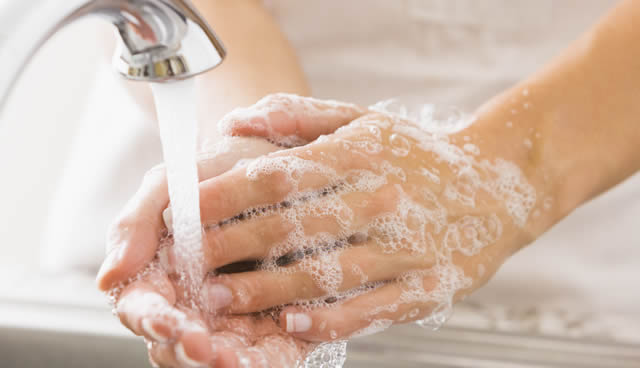The Minister of State for Environment, Iziaq Salako, has said washing hands with soap under running water can reduce infections by 50 percent and respiratory disease by 25 per cent.
Salako made this known on Monday, at n event to commemorate the 2023 Global Handwashing Day organised in collaboration with the Federal Ministry of Education, Breakthrough Action Nigeria, and other stakeholders, at the Federal Government Boys College, Abuja.
The Global Handwashing Day is an annual global advocacy day celebrated on October 15 to increase awareness and understanding of the importance of handwashing with soap as an easy, effective and affordable way to prevent diseases, save lives and help meet Sustainable Development Goals three and six.
This year’s theme is “Clean hands are within reach.”
According to Salako, this year’s theme calls for strong leadership and collective efforts to close the gaps in access and practice to achieve hand hygiene for all.
Salako, who was represented by the acting Permanent Secretary of the FMoE, Charles Ikeah, said research has shown that creating awareness on proper handwashing helps communities to stay healthy by reducing the number of people who get sick with diarrhoea by 23-40 per cent, reducing diarrhoea illness in people with weakened immune systems by 58 per cent, reducing respiratory illnesses, like colds, in the general population by 16-21 per cent, and also reduces absenteeism due to gastrointestinal illness in school children by 29-57 per cent.
“Handwashing with soap under running water is the most cost-effective health intervention compared with others such as immunisation and responding to disease outbreaks. Hands often act as agents that carry disease-causing pathogens from person to person, either through direct contact or indirectly via surfaces, hence hand hygiene is regarded as one of the most important elements of infection control activities and alone can significantly reduce the risk of cross-transmission of infection in healthcare facilities.
“Research has shown that handwashing helps in battling the rise of Antimicrobial Resistance. Resistance to antibiotics is one of the greatest threats to global health, food security and development. Increasing numbers of serious infections are becoming more difficult to treat because of the loss of efficacy of antibiotics which are often misused and abused; hence it is very important that we reduce the number of these infections by washing hands frequently,” he noted.
The Minister stated that the achievement of environmental sanitation is a cross-cutting issue and the importance of clean and portable water cannot be overemphasised, therefore necessary resources must be committed to ensuring that sufficient clean water is available for hand washing at appropriate times.
He added that addressing sanitation and hygiene challenges in the country is a necessary and worthwhile investment.
Also, the Minister of Education, Tahir Mamman said handwashing is a fundamental act of self-care and community wellbeing.
Mamman represented by Hassana Mailafia emphasised that handwashing is a simple yet powerful gesture that can save lives and prevent the spread of diseases.
He said, “As we celebrate this day, let us renew our commitment to promoting accessible, sustainable, and inclusive hand hygiene practices across all corners of our nation by instilling the habit of regular handwashing because appropriate hand hygiene practice will protect us and ensure a healthier, more prosperous future for all.
‘May this global commemoration inspire all of us, communities, and all educational institutions to collaborate in spreading the awareness and creating environments conducive to proper hand hygiene. Together, we can make a significant impact in safeguarding the health and wellbeing of our fellow citizens.
“As we look forward to a global community where clean hands are a shared value and a universal practice.”










